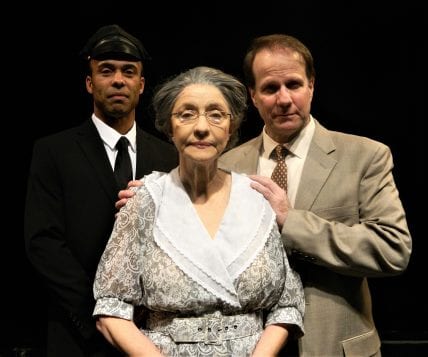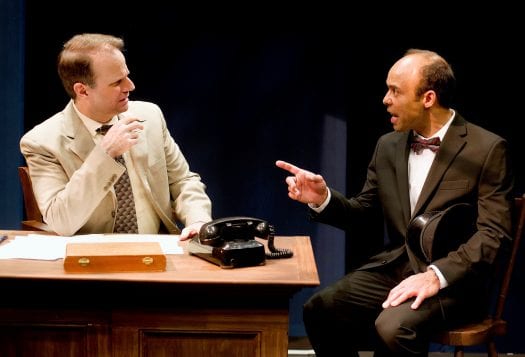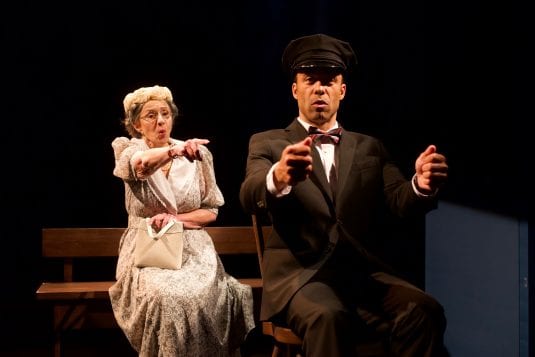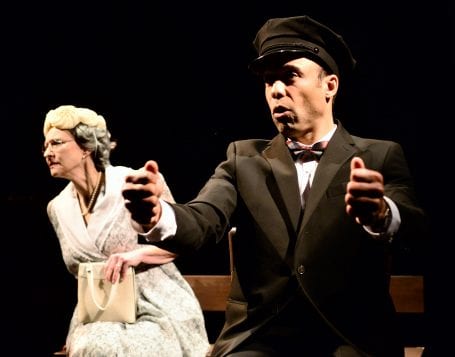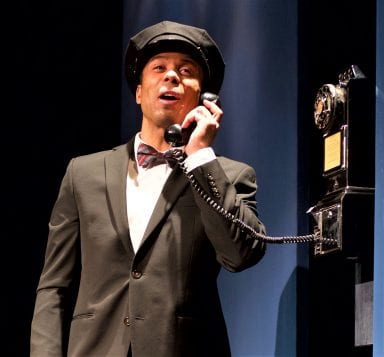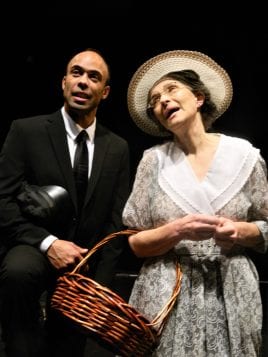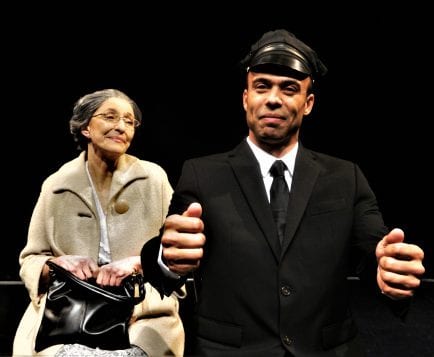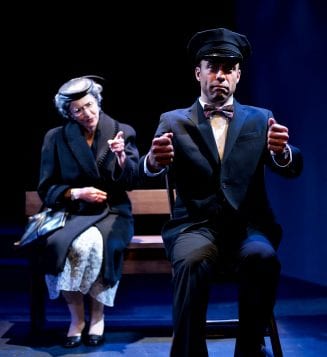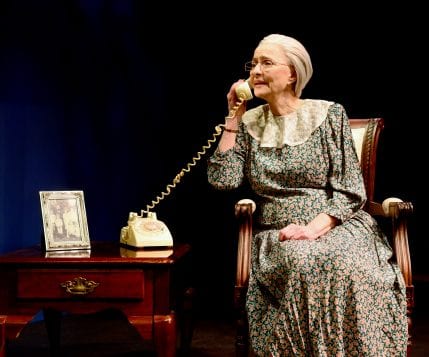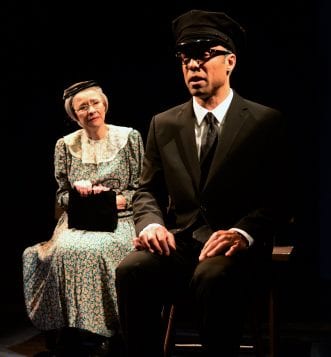Theater Review: Theatre Three’s ‘Driving Miss Daisy’ is well worth the ride
By Heidi Sutton
Every now and then a show comes along that touches your heart and soul so deeply that you walk away at the end promising yourself to do better, be nicer, be kinder. Such is the case with Theatre Three’s latest offering, a revival of Alfred Uhry’s Pulitzer Prize-winning play, “Driving Miss Daisy.” Directed by Linda May, the show opened last Saturday night and runs through Feb. 1.
Part of the playwright’s “Atlanta Trilogy,” the storyline was inspired by Uhry’s father, grandmother Lena and Lena’s chauffeur of 25 years and explores the complexity of family, friendships and aging as well as racial and religious tensions in the South over the years.
Set in Atlanta from 1948 to 1973, it follows the lives of Daisy Werthan, a wealthy Jewish widow and retired fifth-grade teacher; her businessman son Boolie; and Daisy’s driver, Hoke Colburn.
The 72-year-old Daisy has crashed her new car, and her son has decided she should no longer drive. Stubborn and proud (“It was the car’s fault!”), Daisy is not ready to give up her independence; but Boolie prevails and hires Hoke, a black man in his 60s who most recently drove for a Jewish judge. At first, Daisy is not too happy with the arrangement and refuses to even acknowledge Hoke. Over time, however, the two form an unbreakable bond.
Set in a series of short scenes, fans of either the original 1987 play or the 1989 Academy Award-winning film version of “Driving Miss Daisy” will absolutely love what Linda May has created. All of the wonderful moments are there, including the first time Daisy lets Hoke drive her to the Piggly Wiggly and Hoke excitedly calls Boolie to tell him, “I just drove your mama to the market. Only took me six days. Same time it took the Lord to make the world!” and when Daisy accuses Hoke of stealing … a 33-cent can of salmon.
The audience tags along on a visit to the cemetery to visit Daisy’s late husband’s grave and Hoke reveals he can’t read; Christmas at Boolie’s where Daisy gives Hoke a book to help him practice his writing; and on a road trip to Mobile, Alabama to visit relatives, where Hoke pulls over “to make water” against his passenger’s wishes and has to remind Daisy that “colored can’t use the toilet at any service station.”
One of the most emotional scenes is when the temple to which Hoke is driving Daisy is bombed. “Who would do that?” questions Daisy in a state of disbelief. “It’s always the same ones,” answers Hoke sadly and recounts the time his best friend’s father was lynched.
May has assembled the ultimate dream team to portray this delicate drama. Phyllis March (“Nunsense,” “Where There’s a Will”) plays the opinionated and unfiltered Daisy who softens ever so slightly as the years pass and grows to love and appreciate Hoke and all he does for her. March’s performance is pure perfection, with special mention to the scene where Daisy suffers a memory loss and believes she is still a fifth-grade teacher. Emotional and raw, the scene takes the audience’s breath away.
In a role his father played on the same stage 25 years ago, Antoine Jones (“Art,” “Festival of One Act Plays”) is absolutely magnificent as the even-tempered Hoke who puts up with the cantankerous Daisy. “Did you have the air-conditioning checked? I told you to have the air-conditioning checked,” says Daisy. “I don’t know what for. You never allow me to turn it on,” is Hoke’s exasperated reply.
Jones brings out the quiet dignity of a man who has dealt with racial discrimination his whole life but sees hope for the future in his daughter. We see Hoke’s relationship gradually evolve with Daisy from employee/employer to best friends. The final scene in the nursing home will have you reaching for the tissues. Antoine, your father would be so proud.
Steve Ayle (“The Addams Family,” “12 Angry Men,” “Art”) is wonderful in the role of Boolie, the dutiful son who puts up with his mother’s prickly personality, especially when she is insulting Boolie’s wife, Florene, who is there in spirit. “You’re a doodle, Mama!” says Boolie often in an attempt to diffuse the situation. Ayle’s facial expressions are spot on in this comedic role.
Incredibly, as the play progresses the actors get older right before our very eyes. The hair goes gray, then white; the walk slows down to a shuffle and it takes a bit longer to get out of a chair. The transformation is extraordinary.
Funny, sad, powerful, moving and brilliantly executed, Theatre Three’s “Driving Miss Daisy” is a wonderful way to kick off the theater’s 50th year. The swift and unanimous standing ovation on opening night was most deserved. Don’t miss this one.
Theatre Three, 412 Main St., Port Jefferson presents “Driving Miss Daisy” through Feb. 1. Tickets are $35 adults, $28 students and $20 for children ages 5 to 12. For more information or to order, call 631-928-9100 or visit www.theatrethree.org.
Photos by Brian Hoerger and Peter Lanscombe, Theatre Three Productions, Inc.

